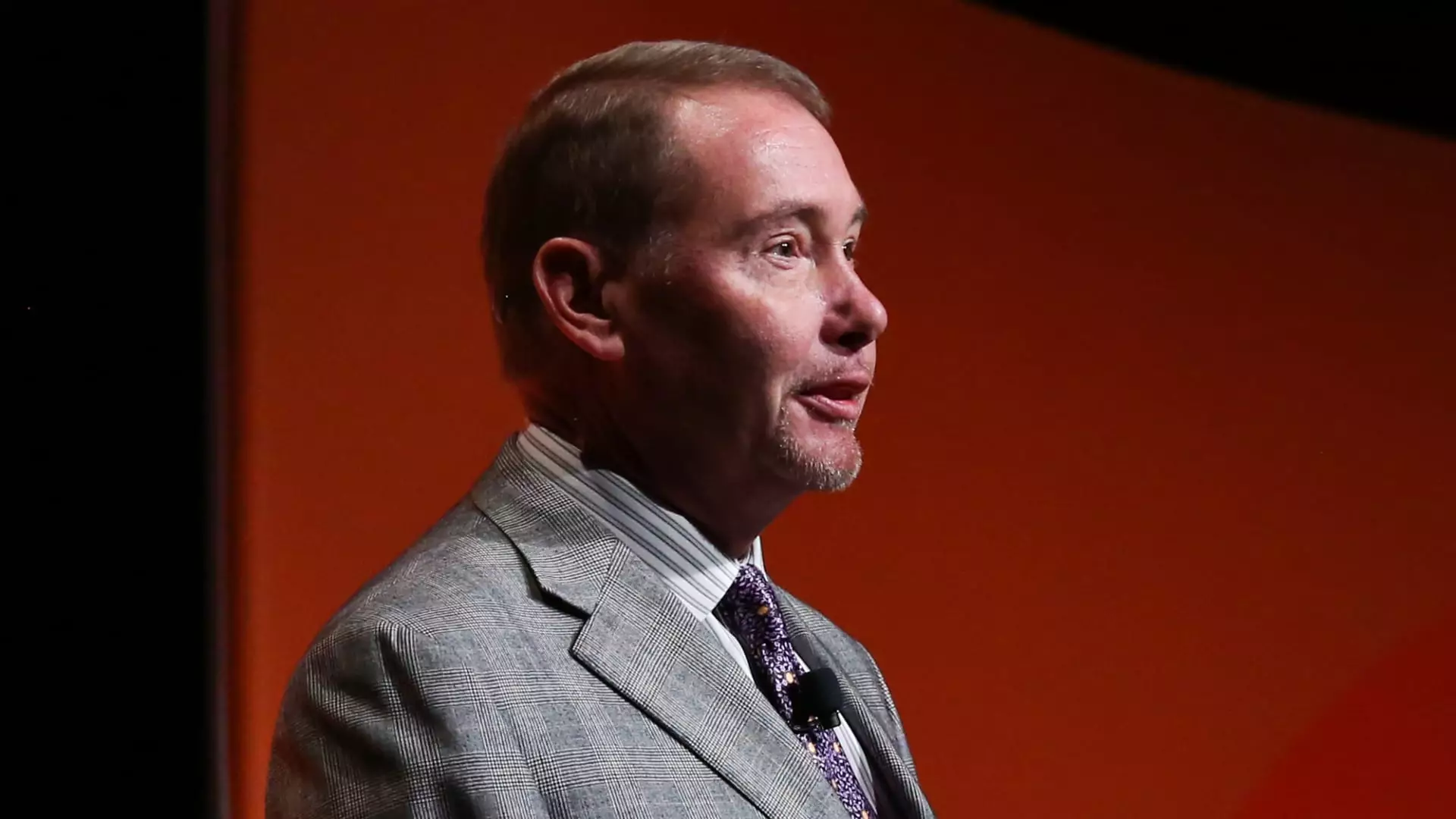In a recent broadcast, Jeffrey Gundlach, the CEO of DoubleLine Capital, voiced his concerns regarding the Federal Reserve’s approach to monetary policy, likening it to the clumsy antics of Mr. Magoo. His colorful metaphor captures the essence of his critique: the Fed appears to be reactive rather than proactive, continuously adjusting policy in response to short-term economic data while neglecting the broader context. According to Gundlach, this short-sightedness is resulting in a failure to effectively manage inflation and stabilize the economy in the long run.
Gundlach’s points come at a critical moment, just before the release of the latest consumer price index (CPI) figures. The CPI data reflected a 0.4% increase over the past month, which propelled the annual inflation rate to 2.9%. Although this might seem moderately positive, it indicates that the Fed still has significant work ahead to achieve its stated inflation target of 2%. This ongoing inflationary trend has left economists questioning the efficacy of the Fed’s recent monetary policies.
Gundlach’s analysis highlights an essential aspect of current economic dynamics: while the Fed’s adjustments seem logical in response to real-time data, they fail to account for sustained inflationary pressures. The monthly CPI changes have caused erratic movements in market predictions, with projections shifting from aggressive rate cuts to a more conservative stance suggesting only one cut in 2025.
The Federal Reserve’s recent decision-making follows a pattern of cutting benchmark interest rates by a full percentage point since September. Such an approach, particularly the unusual half-point reduction in a single month, raises questions about the central bank’s strategic direction and long-term vision. The transitional reduction indicates an attempt to navigate a fluctuating economic landscape, yet it seems to lack the foresight that Gundlach advocates.
As Gundlach aptly pointed out, the Fed finds itself in sync with market expectations at present, suggesting a slowdown in its monetary policy adjustments. While futures pricing implies little change at the upcoming January meeting, there is still a strong market sentiment predicting two potential quarter-point cuts throughout the year.
The implications of this critique are profound. For sustained economic recovery, a notable shift toward more strategic, long-range monetary policy is essential. The current short-term measures may provide temporary relief but risk prompting volatility in the markets and in consumer confidence. By emphasizing strategy over immediate reactions, the Federal Reserve could work toward a healthier economic environment that prioritizes stability and reduces uncertainty.
Gundlach’s observations urge the Federal Reserve to reassess its approach to inflation management and monetary policy. Without a broader strategic framework that considers long-term outcomes, the Fed risks repeating past mistakes that could undermine its credibility and effectiveness in steering the economy. As economic actors, policymakers must prioritize long-term stability over the transient nature of short-term data fluctuations.

